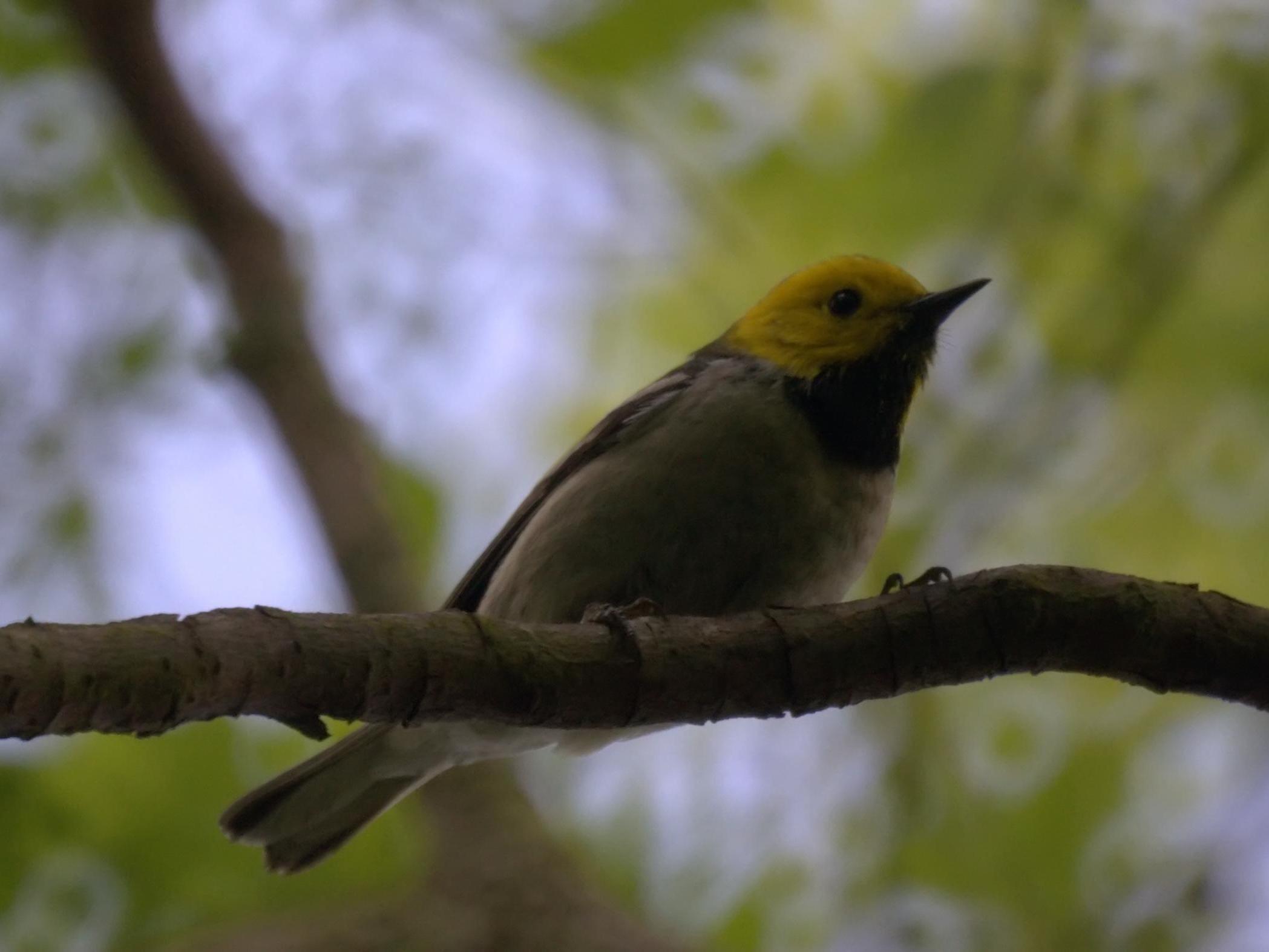Wildfires cause songbird ‘dialect’ to change
Hermit warblers tend to sing the same melodies as their neighbours – until blazes force them to flee

Songbirds dislocated by wildfires influence the “dialects” of birds in nearby areas, scientists have discovered.
Hermit warblers, small perching birds native to US Pacific Coast states, typically sing from the same songsheet as other members of their species that live in the same region.
While warblers use a repertoire of complex songs to defend their territory, when it comes to mating calls the amorous birds tend to share a single, formulaic melody with their neighbours.
Learning through imitation often leads to the development of geographically distinct song variants, much like human dialects.
But hermit warblers – which live exclusively in the states of California, Oregon, and Washington over summer – are sensitive to disruptions such as fires and timber harvests in its forest habitats.
Even relatively small fires can cause the birds to flee in search of a safer environment.
Scientists in California, where heat and dry weather make wildfires common, discovered this behaviour led to some areas having a “complex diversity” of dialects.
Researchers at the California Department of Fish and Wildlife recorded 1,588 male hermit warblers across 101 sites in the state between 2009 and 2014 to compile a comprehensive map of the their formulaic songs.
They classified the songs into 35 dialects, modelled the effects of recent fire history in the associated regions, and mapped breeding habitats.
Their study, published in the journal Auk: Ornithological Advances, found that song diversity increased in areas where there had been more fires.
Using analysis of additional data from 10 study areas revisited in 2019, the researchers also showed song structure had begun to change since the initial visits 5 to 10 years earlier – and diversity of songs had increased at locations that had been burned by wildfires in the meantime.
“Our surveys suggest that song dialects arose in sub-populations specialised to different forest types,” said the paper’s lead author, Brett Furnas, of the department’s wildlife investigations laboratory.
He added: “Over the longer term, fire caused some birds to flee and created a vacuum for other birds to fill.
“The net result is that some areas now have birds singing more than one dialect resulting in a complex diversity of songs throughout California.”
Join our commenting forum
Join thought-provoking conversations, follow other Independent readers and see their replies
Comments